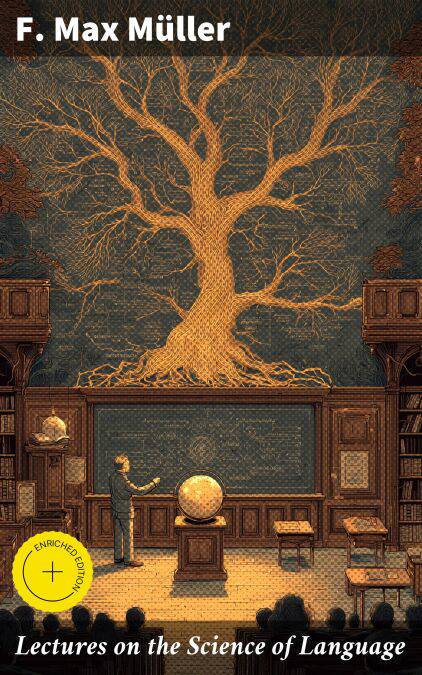
- Retrait en 2 heures
- Assortiment impressionnant
- Paiement sécurisé
- Toujours un magasin près de chez vous
- Retrait gratuit dans votre magasin Club
- 7.000.0000 titres dans notre catalogue
- Payer en toute sécurité
- Toujours un magasin près de chez vous
Lectures on the Science of Language EBOOK
Enriched edition. Exploring the Evolution and Function of Language
F. Max Müller
Ebook | Anglais
1,99 €
+ 1 points
Description
In "Lectures on the Science of Language," F. Max Müller presents a profound exploration of linguistic philosophy and the evolution of language, weaving an intricate narrative that spans across various languages and cultures. Müller's literary style is characterized by clarity and precision, making complex ideas accessible to both scholars and lay readers. The lectures, originally delivered in the 19th century, delve into the interrelationship between language, thought, and culture, situating them within the broader context of historical linguistics and philology. His insights highlight the dynamic nature of language as a living entity shaped by human experience and societal evolution. Friedrich Max Müller was a pioneering philologist and orientalist who devoted his life to the study of languages, particularly Sanskrit. His academic background, influenced by his profound interest in the intersection of language and human expression, led him to scrutinize the role of language in shaping human civilization. Müller's work reflects the intellectual fervor of the Victorian era, where the rise of comparative linguistics sought to uncover the roots and connections between languages across the globe. "Lectures on the Science of Language" is indispensable for anyone interested in linguistics, anthropology, or the history of ideas. This text not only enriches the understanding of language but also challenges readers to contemplate the intricate relationship between language and culture. Engaging with Müller's profound arguments will undoubtedly inspire further exploration into the nature of human communication and thought.
In this enriched edition, we have carefully created added value for your reading experience:
- A succinct Introduction situates the work's timeless appeal and themes.
- The Synopsis outlines the central plot, highlighting key developments without spoiling critical twists.
- A detailed Historical Context immerses you in the era's events and influences that shaped the writing.
- A thorough Analysis dissects symbols, motifs, and character arcs to unearth underlying meanings.
- Reflection questions prompt you to engage personally with the work's messages, connecting them to modern life.
- Hand‐picked Memorable Quotes shine a spotlight on moments of literary brilliance.
- Interactive footnotes clarify unusual references, historical allusions, and archaic phrases for an effortless, more informed read.
In this enriched edition, we have carefully created added value for your reading experience:
- A succinct Introduction situates the work's timeless appeal and themes.
- The Synopsis outlines the central plot, highlighting key developments without spoiling critical twists.
- A detailed Historical Context immerses you in the era's events and influences that shaped the writing.
- A thorough Analysis dissects symbols, motifs, and character arcs to unearth underlying meanings.
- Reflection questions prompt you to engage personally with the work's messages, connecting them to modern life.
- Hand‐picked Memorable Quotes shine a spotlight on moments of literary brilliance.
- Interactive footnotes clarify unusual references, historical allusions, and archaic phrases for an effortless, more informed read.
Spécifications
Parties prenantes
- Auteur(s) :
- Editeur:
Contenu
- Nombre de pages :
- 403
- Langue:
- Anglais
Caractéristiques
- EAN:
- 4064066102074
- Date de parution :
- 15-03-20
- Format:
- Ebook
- Protection digitale:
- Digital watermarking
- Format numérique:
- ePub

Seulement chez Librairie Club
+ 1 points sur votre carte client de Librairie Club
Les avis
Nous publions uniquement les avis qui respectent les conditions requises. Consultez nos conditions pour les avis.





